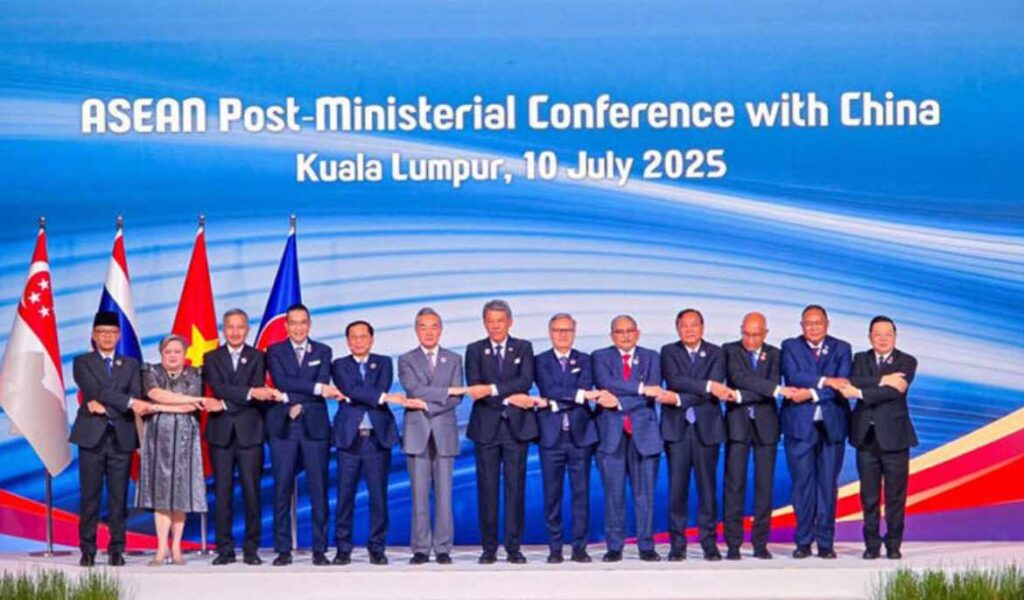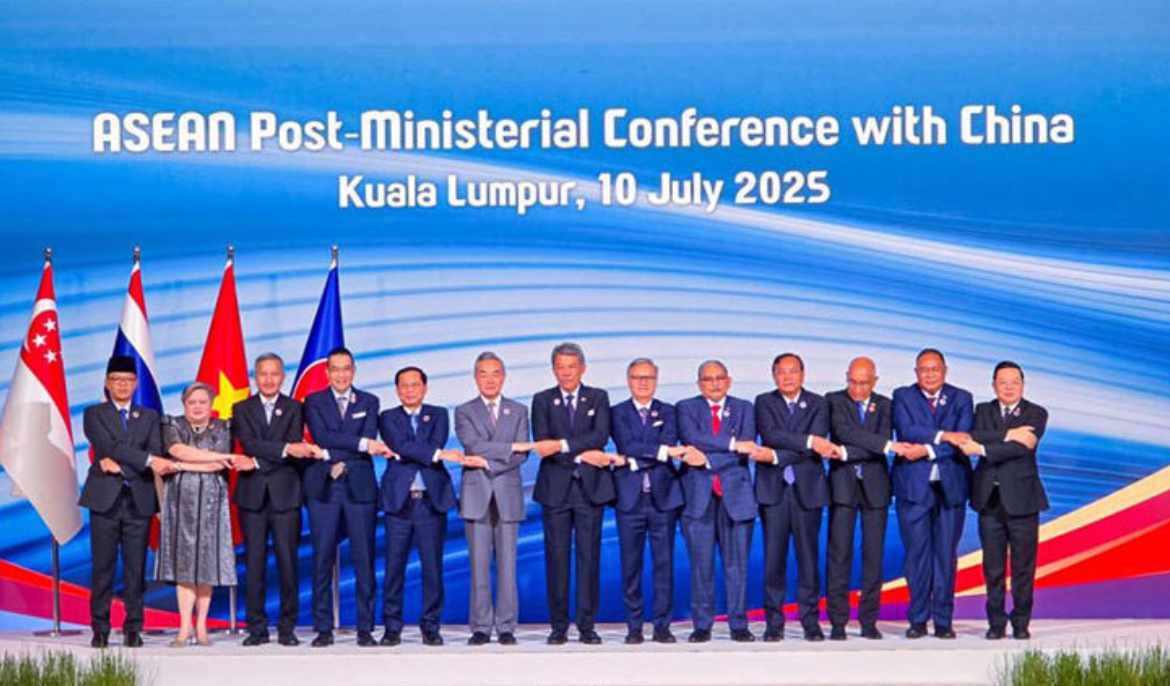Synopsis: Southeast Asian leaders reaffirm their commitment to resolving potential challenges through constructive dialogue and active engagement with the United States.
As the coordinator for ASEAN-US dialogue, Prak Sokhonn, Deputy Prime Minister and Minister of Foreign Affairs and International Cooperation (MFAIC), reaffirmed ASEAN’s commitment to advancing the Digital Economy Framework Agreement (DEFA) with the US.
Sokhonn also took part in the ASEAN-China meeting, where he expressed support for China’s role in enhancing the ASEAN Power Grid (APG), both seen as vital to regional growth and resilience.
The balanced approach was seen during these two separate sessions of the ‘ASEAN Post-Ministerial Conference 10+1’ (PMC+1) with the US and China at the 58th ASEAN Foreign Ministers’ Meeting (AMM), in Kuala Lumpur, Malaysia, from July 8-11.
As the country coordinator for the ASEAN-US dialogue relations, Sokhonn and Marco Rubio, US Secretary of State, co-chaired the PMC+1 session with the United States on July 10.
According to an MFAIC press release on Saturday, the Southeast Asian leaders valued the partnership with the US, which has grown steadily, marked by key achievements across all Southeast Asian community pillars, especially since the establishment of the Comprehensive Strategic Partnership (CSP) in 2022.
The meeting welcomed the full implementation of the current ‘Plan of Action (POA) 2021-2025 and its annexe, while looking forward to developing its successor, aligned with ‘ASEAN 2045: Our Shared Future’.
In this context, they looked forward to the adoption of the ASEAN-US Leaders’ Joint Vision Statement at the 13th ASEAN-US Summit in October 2025, the statement added.
During the meeting, Sokhonn expressed appreciation to the US support for the ASEAN DEFA, which helps lay the groundwork for a more resilient, inclusive, and future-ready digital economy.
The Deputy Prime Minister called for deeper collaboration in digital transformation, innovation, e-commerce, human capital development and empowering micro, small, and medium enterprises (MSMEs).
They also reiterated the shared commitment to further strengthen economic partnership with the US, reaffirming their commitment to resolve potential challenges through constructive dialogue and active engagement.
Meanwhile, at the PMC+1 with China, the Southeast Asian leaders commended the progress made in implementing the POA (2021–2025) and its annexe, particularly in deepening trade and infrastructure cooperation under the ASEAN-China CSP for peace, security, prosperity and sustainable development.
The participants welcomed the conclusion of the ‘ASEAN-China Free Trade Area (ACFTA) 3.0 Upgrade Negotiations’ and reaffirmed both sides’ commitment to signing the agreement this year, an upgrade expected to inject fresh momentum into bilateral trade and investment.
Based on the MFAIC press release, China’s proposal to designate 2026 as the ASEAN-China Year, marking the 5th anniversary of the CSP, was noted with interest.
In this regard, the Southeast Asian leaders looked forward to adopting a new five-year POA to further elevate the ASEAN-China economic agenda.
Sokhonn highlighted the continued expansion of the ASEAN-China partnership, underscoring its tangible economic benefits and resilience amid global uncertainty.
He emphasised the importance of robust trade, clean energy investment, and infrastructure development, particularly China’s potential contribution to the APG, which aimed to improve energy security, integrate renewables, and build a regionally interconnected energy network.
With the adoption of the new ASEAN connectivity strategic plan, the Deputy Prime Minister urged both sides to align it with China’s Belt and Road Initiative (BRI) and other relevant regional connectivity efforts to maximise economic synergies.



